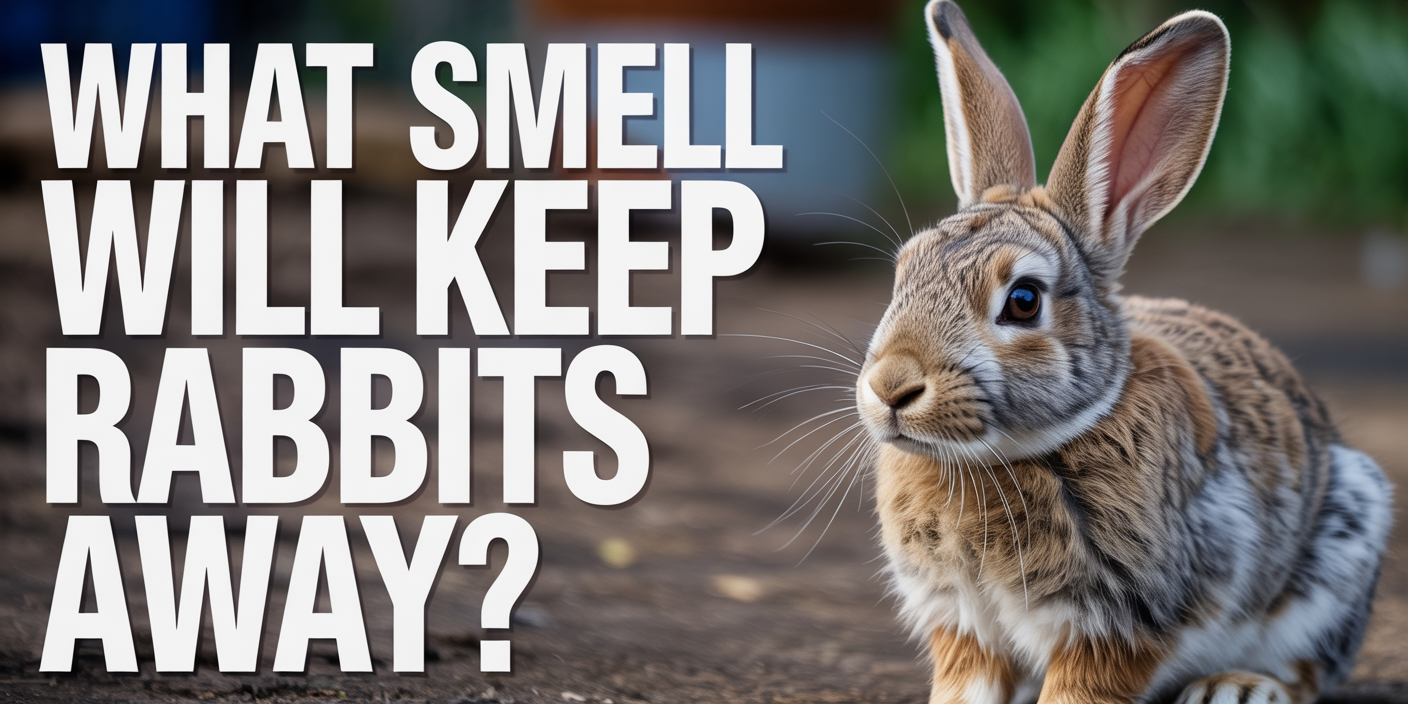Rabbits dislike scents such as garlic, vinegar, lavender, and predator urine. These odors block food and predator cues, making them keep away.
Rabbits may look harmless, but they can quickly turn gardens and landscaping into their personal buffet. Many homeowners use strong-smelling substances to keep them away, relying on scents that rabbits naturally find unpleasant.
Learn more: How to destroy a rabbit burrow?
What smell do rabbits hate the most?
Rabbits have an extremely sensitive sense of smell, which they use to detect food and potential threats. Strong odors like garlic, vinegar, ammonia, and predator urine overwhelm their senses, making the area feel unsafe or unpleasant.
These scents signal danger or disrupt their ability to forage comfortably, encouraging them to avoid treated spots. In gardens, people often use crushed garlic, diluted vinegar sprays, or commercially prepared predator urine to create an unwelcoming environment.
While these smells can deter rabbits in the short term, they need to be reapplied regularly, especially after rain, to remain effective. Consistency is key for keeping rabbits away with scent-based methods.
Do natural scents really work to keep rabbits away?
Natural scents can be effective in deterring rabbits, especially when used in concentrated form and applied to areas where they frequently feed. The strong aroma can disrupt their comfort zone and make your garden less appealing.
Many homeowners prefer natural options because they’re safer for plants, pets, and the environment compared to chemical repellents. However, scent-based deterrents have limitations.
Rain, wind, and sun exposure can quickly fade the smell, requiring frequent reapplication to maintain results. Rabbits can also become accustomed to certain scents over time, so rotating different odors can help sustain their effectiveness.
Are store-bought rabbit repellents effective?
Commercial rabbit repellents often use concentrated natural ingredients like garlic oil, putrescent egg solids, or capsaicin to create strong, long-lasting scents. These products are formulated to withstand outdoor conditions better than homemade sprays, meaning they don’t need to be reapplied as often.
Many also combine scent and taste deterrents, making treated plants both unpleasant to smell and to eat. While store-bought options can be effective, they’re not a permanent fix.
Rabbits may still return if food is scarce or the scent wears off, and some products can be pricey over time. For the best results, these repellents should be part of a broader rabbit-control plan rather than the sole defense.
Can certain plants keep rabbits out of your garden?
Some plants naturally produce scents that rabbits find unappealing, making them a great addition to a rabbit-resistant garden. Herbs like rosemary, thyme, and lavender, along with flowers such as marigolds and daffodils, can create a fragrant barrier that discourages rabbits from entering.
These plants work best when placed along the edges of your garden or around high-risk areas. While planting rabbit-resistant species can help, they aren’t foolproof.
Hungry rabbits may still nibble on them if other food sources are limited. For stronger protection, combine these plants with other deterrents like fencing or scent sprays to create multiple layers of defense.
What’s the best long-term solution for keeping rabbits away?
The most effective way to keep rabbits out for good is to combine scent-based deterrents with physical barriers. A sturdy fence at least two feet high, with the bottom buried six inches into the ground, prevents rabbits from digging underneath.
Pairing this with strong-smelling repellents adds an extra layer of protection, making your garden even less appealing. Long-term success also depends on removing what attracts rabbits in the first place.
This means keeping gardens tidy, clearing fallen produce, and reducing dense vegetation where they might hide. For persistent problems, contacting a professional wildlife control service ensures the rabbits are dealt with humanely and that preventive measures are properly installed.
Use smell as part of a bigger rabbit-proofing plan
Strong scents like garlic, vinegar, and certain herbs can make your garden less appealing to rabbits, but they work best as part of a layered defense. Relying on smell alone often leads to short-term results, especially when weather conditions quickly fade the odor.
For lasting protection, combine scent deterrents with physical barriers and smart landscaping choices. This approach keeps rabbits away while protecting your plants in a humane and environmentally friendly way.
Call AAAC Wildlife Removal for Humane Rabbit Control
If rabbits are turning your yard or garden into a feeding ground, AAAC Wildlife Removal can help. Our team uses safe, humane methods to remove rabbits and prevent them from coming back, protecting your plants without harming local wildlife.
From identifying entry points to setting up long-term prevention strategies, we provide solutions that actually work. Contact AAAC Wildlife Removal today to schedule an inspection and reclaim your yard from unwanted furry visitors.




